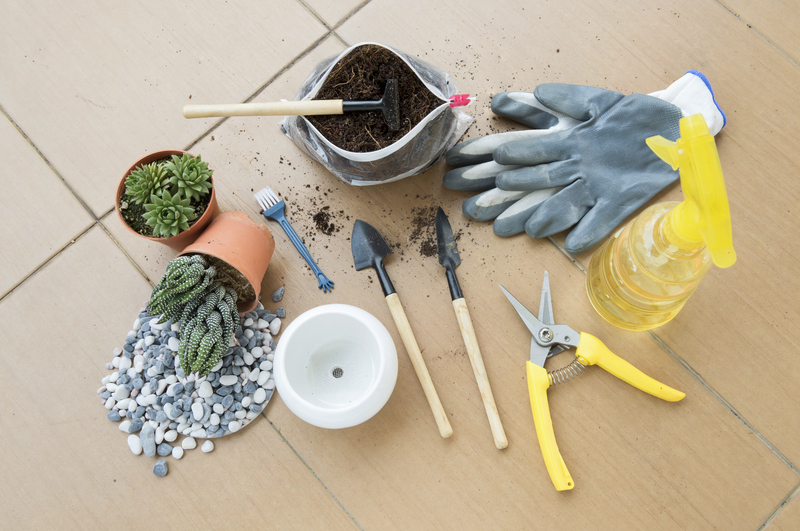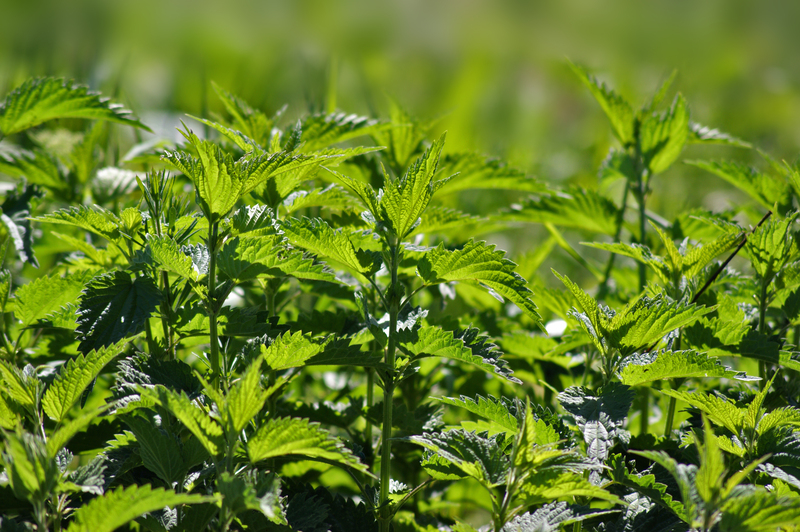The Green Thumb's Guide: Three Tips to Vanquish Weeds
Posted on 03/09/2025
The Green Thumb's Guide: Three Tips to Vanquish Weeds
Weeds can be the bane of every gardener's existence. Whether you're tending a flower bed, nurturing a pristine lawn, or cultivating a thriving vegetable garden, invasive weeds threaten to overrun your efforts. Removing weeds effectively requires not only persistence but also know-how. In this comprehensive guide, we present the three essential strategies every green thumb should know to keep weeds at bay and enjoy a lush, flourishing garden.
Understanding the Enemy: Why Weeds are a Garden's Persistent Problem
Weeds are simply plants growing where they aren't wanted. But their resilience, rapid growth, and prolific seed production mean they outcompete your plants for light, nutrients, and water. A basic knowledge of how weeds thrive and spread is the fundamental first step in formulating a successful weed control plan.
- Fast Growth: Most weed species germinate quickly and can outpace more desirable plants.
- Abundant Seeds: Weeds can generate thousands of seeds, ready to sprout at the slightest opportunity.
- Adaptive Roots: Deep or spreading root systems make many weeds hard to eradicate.
With the right weed management techniques, however, even the most stubborn dandelions and crabgrasses can be reduced to a minor nuisance. Let's dig in to the three most effective ways to vanquish weeds from your garden for good!

Tip 1: Cultivate Healthy Soil & Prevent Weed Germination
As a green thumb, you already know that soil is more than just dirt -- it's the lifeblood of your garden. Weeds thrive in disturbed, nutrient-poor ground. A proactive approach to nurturing your soil not only strengthens your plants but also naturally suppresses weeds.
Mulching: Nature's Blanket Against Weed Growth
- Organic mulches, such as shredded bark, straw, grass clippings, or compost, smother weed seeds, blocking sunlight and preventing germination.
- Inorganic mulches like landscape fabric or gravel create a physical barrier, halting weeds in their tracks.
- Mulch helps retain moisture, reduce soil temperature extremes, and foster beneficial organisms -- all factors that discourage weeds and encourage healthy garden plants.
Pro Tip: Apply a 2-4 inch layer of organic mulch in garden beds and around landscape plants, renewing it as it decomposes for year-round weed prevention.
Soil Health: Feed the Soil, Not the Weeds
- Regularly add compost to enrich soil structure and boost plant vigor. Vigorous, established plants shade out weed seedlings.
- Aim for a balanced fertilizer schedule tailored to your plantings to avoid promoting weed growth with excess nutrients.
- Test soil pH and fertility annually to correct imbalances that favor certain weeds.
- Avoid deep tilling, which brings dormant weed seeds to the surface. Opt for gentle cultivation or no-till methods when possible.
Healthy soil equals fewer weeds. By investing in your soil, you develop a self-sustaining system that minimizes weed invasions and yields healthier plants season after season.
Tip 2: Manual Weeding and Smart Removal Techniques
Despite all prevention, some weeds inevitably pop up. Vigilant manual removal is a rite of passage for every gardener and remains one of the most effective methods to control weeds without chemicals. But simply pulling weeds isn't always enough -- how and when you remove weeds makes all the difference.
Key Strategies for Effective Weeding
- Weed early and often: Young weeds are easier to remove and haven't yet gone to seed.
- Use the right tools: A hand fork, hoe, or dandelion weeder can extract stubborn roots without breaking them, reducing regrowth.
- Target the roots: Grasp weeds at the base and extract the entire root structure. Many weeds, like dandelions or bindweed, can regenerate from even small root fragments.
- Choose the right conditions: Pull weeds after rain or watering when the soil is moist, making it easier to remove roots intact.
- Dispose responsibly: Compost only weed-free materials. Seed heads, rhizomes, and persistent roots should go in the trash to avoid reseeding.
Timing Matters: Don't Let Weeds Reproduce
- Never let weeds flower or set seed. One dandelion puff can scatter hundreds of seeds to the wind.
- Plan regular weeding sessions, especially during rapid spring growth and after storms that may expose new soil.
- Persistence pays off. Consistent hand-weeding will exhaust the weeds' stored energy over time.
Bonus Tip: Try flame weeding or boiling water for patios, pavers, or driveways. These methods provide a chemical-free way to kill weeds in hardscape areas.
Tip 3: Crowd Out Weeds with Strategic Plantings
One of the most natural ways to kill weeds is by making it hard for them to grow in the first place! Intentional garden design, known as "competitive planting," fills all available niches with desirable species, depriving weeds of sunlight, water, and soil space.
Ground Covers: Nature's Living Mulch
- Plant dense, low-growing ground covers such as creeping thyme, sweet woodruff, or vinca minor under taller shrubs and trees.
- Use fast-spreading annuals or perennials in flower and vegetable beds to shade bare soil during the season's peak.
- Dormant mulch crops like winter rye can overtake garden beds in the offseason, suppressing early spring weeds.
Spacing and Design Tips for Weed Suppression
- Closer spacing of vegetable seedlings or annuals blocks sunlight and crowds out emerging weeds.
- Use vertical gardening or tiered beds to provide maximum ground shading and visual appeal.
- Layer plants by height and habit for a lush, weed-resistant landscape tapestry.
Smart planting is both beautiful and practical. By ensuring every inch of soil is covered by vigorous, desirable plants, you drastically reduce weed pressure and maintenance time.
The Long-Term Approach: Integrating These Weed Management Techniques
Mastering how to vanquish weeds is a matter of integrating all three of these proven methods for continuous weed prevention:
- Nurture healthy soil and use mulch to keep weed seeds from sprouting.
- Remove weeds promptly by hand and employ the right tools and timing.
- Plant densely and wisely, filling all gaps with attractive, vigorous ground covers or garden plants.
This multi-pronged approach is the hallmark of seasoned gardeners. Over time, your efforts will deplete the weed seed bank and make your plots increasingly weed-proof.
Additional Tips for Long-Term Weed Control
Stay Vigilant Year-Round
- Inspect new plants, compost, and mulch for hidden weed seeds before adding to your garden.
- Edge lawn and beds regularly to prevent turf weeds from encroaching on your flower or vegetable areas.
- Repair bare spots quickly with seed or sod -- exposed soil is a weed's invitation to invade.
- Sharpen mower blades and mow lawns at a higher height, which shades out weed seedlings and encourages robust turf growth.
When to Use Herbicides
While this guide focuses on natural and manual methods, in some cases, especially with invasive or perennial weed infestations, targeted herbicide use can be warranted. Always:
- Choose the least toxic option and spot-treat rather than broadcast-apply.
- Follow manufacturer instructions to the letter.
- Avoid spraying near desirable plants, water sources, or on windy days.
- Wear gloves and protective clothing when handling chemicals.
Embrace the Green Thumb Mindset: Persistence & Prevention
There's no magic bullet for a weed-free garden, but the right combination of prevention, smart removal, and competitive planting can reduce the need for labor and chemicals over time. A little regular attention pays off with beautiful, productive beds and lawns that you'll enjoy year after year.
Key Takeaways from the Green Thumb's Guide:
- Healthy soil and thick mulch keep most weed seeds from ever germinating.
- Timely weeding by hand prevents weeds from seeding and returning in force.
- Strategic planting with ground covers and close spacing deprives weeds of opportunities to gain a foothold.
Remember: Even master gardeners still pull the occasional weed. The difference is in consistency and applying these best practices season after season. By following the top three weed control tips outlined in this guide, you'll foster a thriving, resilient green space, and enjoy all the rewards of your efforts -- with fewer weeds to worry about.

FAQs: Answers to Common Weed Control Questions
Can I really control weeds without chemicals?
Absolutely! The combination of mulching, manual removal, and strategic planting can drastically reduce weed pressure. For most home gardens, chemical herbicides are best reserved for severe infestations only.
How often should I mulch my beds?
Renew organic mulch annually as it decomposes, and top up as needed throughout the season for consistent weed barrier protection.
What's the best time of year to tackle weeds?
Early spring is the ideal moment. Remove last year's weeds before seeding, and apply fresh mulch before the warm weather encourages weed germination.
Can weeds ever be good for my garden?
Some "weeds" can provide habitat for pollinators and improve soil quality when chopped and dropped. Use discernment -- and don't let them take over!
Conclusion: Reap the Rewards of Smart Weed Management
With these three foundational weed-beating tips at your disposal, you're well equipped to keep your garden beds beautiful, productive, and largely free from unwanted guests. Let your dedication and new knowledge guide each season. The green thumb's secret is diligence -- and the right techniques. Happy gardening, and may your biggest problem soon be harvesting all those healthy, weed-free plants!
Latest Posts
Crafting Nature's Art: Vertical Gardening
Inspiring Young Minds: Building a Playful and Safe Garden
Unlock your green thumb with container gardening

